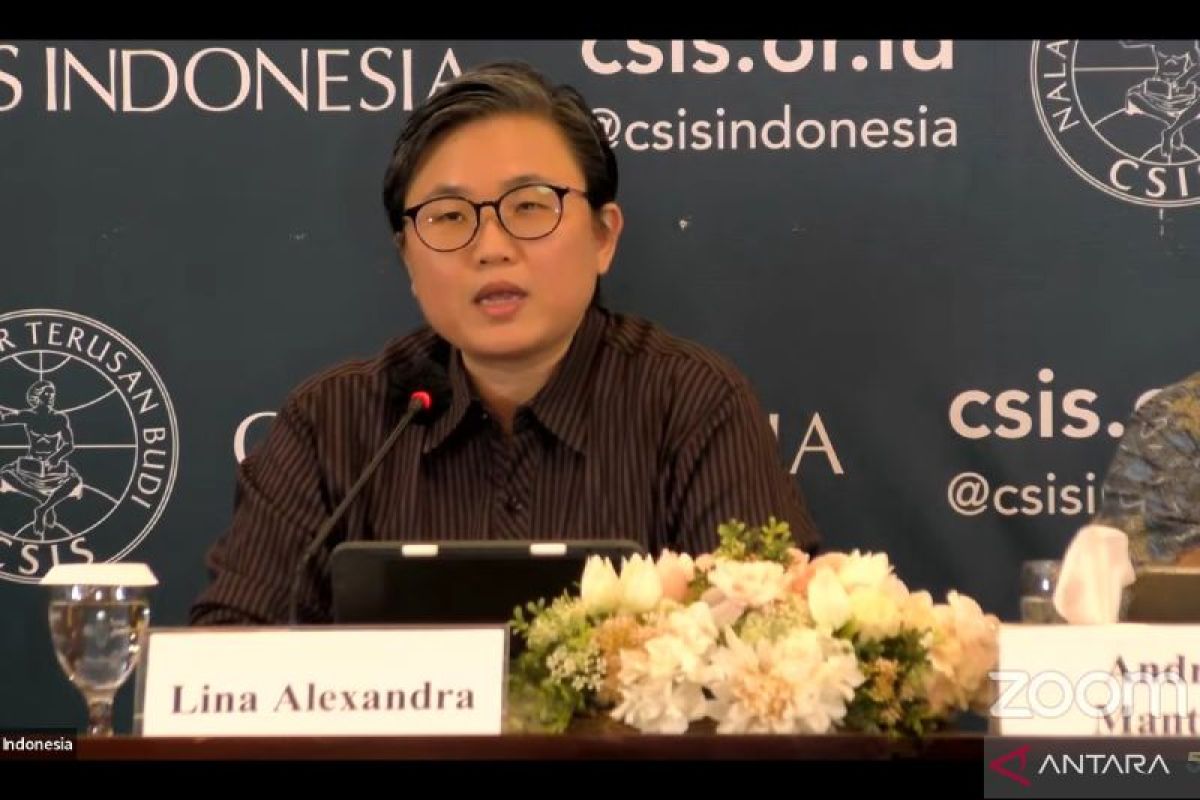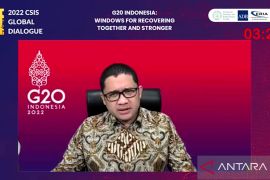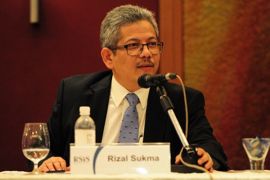Lina Alexandra, who currently leads the International Relations Department at the Center for Strategic and International Studies (CSIS), made the statement in a media briefing here, Monday (January 8).
During the third round of the 2024 election debate in Istora Senayan, Central Jakarta, none of the presidential candidates drew attention to the rivalry-related challenges to Indonesia, Alexandra pointed out.
Therefore, they failed to show the public how they would take and direct Indonesia's foreign policy to anticipate the impact of the rivalry on the country, according to her.
Speaking at the media briefing that CSIS held to respond to the presidential debate and Indonesian foreign minister's annual press statement, Alexandra stated that the doctrine of free and active foreign policy was echoed in the debate.
One of the presidential contenders engaged in the debate had also highlighted the importance of redefining the doctrine, but its context remained unclear, she added.
"We know the doctrine of free and active foreign policy becomes relevant when it is put in the context of rising rivalry among the world's major powers," she affirmed.
According to Alexandra, the public also failed to get the candidates' insights on the need to improve Indonesia's diplomatic instrument, women diplomats-related issues, and budget allocation for human capital development to support Indonesia's diplomatic efforts.
Regarding the need to improve the diplomatic instrument, she asked whether the structure of Indonesia's Foreign Ministry as well as the spread and number of embassies, consulate generals, consulates, and so forth have been effective to support the country's diplomatic efforts.
With regard to the gender issue in diplomacy, Alexandra cited as an example how potential senior women diplomats are given broader working spectrum, though none of the presidential candidates had mentioned this matter.
The General Elections Commission (KPU) has announced that the presidential and parliamentary elections will be held simultaneously across Indonesia on February 14, 2024.
The commission has officially set a 75-day election campaign period from November 28, 2023, to February 10, 2024, for the three pairs of presidential and vice presidential candidates.
All participating political parties and presidential contenders have pledged to conduct peaceful presidential and parliamentary elections.
As part of its efforts to make voters aware of the three candidate pairs' political pledges, the commission has decided to organize five rounds of debates ahead of the presidential election.
The first and second rounds were held on December 12 and December 22, 2023. The third round took place on January 7, 2024, while the fourth and fifth rounds will be held on January 21 and February 4, respectively.
Three pairs of presidential and vice presidential candidates are contesting the presidential election: Anies Baswedan-Muhaimin Iskandar, Prabowo Subianto-Gibran Rakabuming Raka, and Ganjar Pranowo-Mahfud MD.
Baswedan and Iskandar have been nominated with the support of the NasDem Party, National Awakening Party (PKB), Prosperous Justice Party (PKS), and Ummat Party.
Meanwhile, Subianto and Raka have the backing of the Gerindra Party and a coalition of parties, including Golkar, National Mandate Party (PAN), Democratic Party, and Gelora Party.
Pranowo and Mahfud have the support of the Indonesian Democratic Party of Struggle (PDIP), United Development Party, Perindo Party, and Hanura Party.
Related news: Ganjar offers three solutions to handle South China Sea disputes
Related news: Third debate: Prabowo pledges to continue "good neighbor" diplomacy
Related news: Anies pledges cultural diplomacy in third presidential debate
Translator: Cindy FO, Rahmad Nasution
Editor: Tia Mutiasari
Copyright © ANTARA 2024











